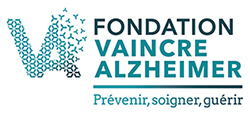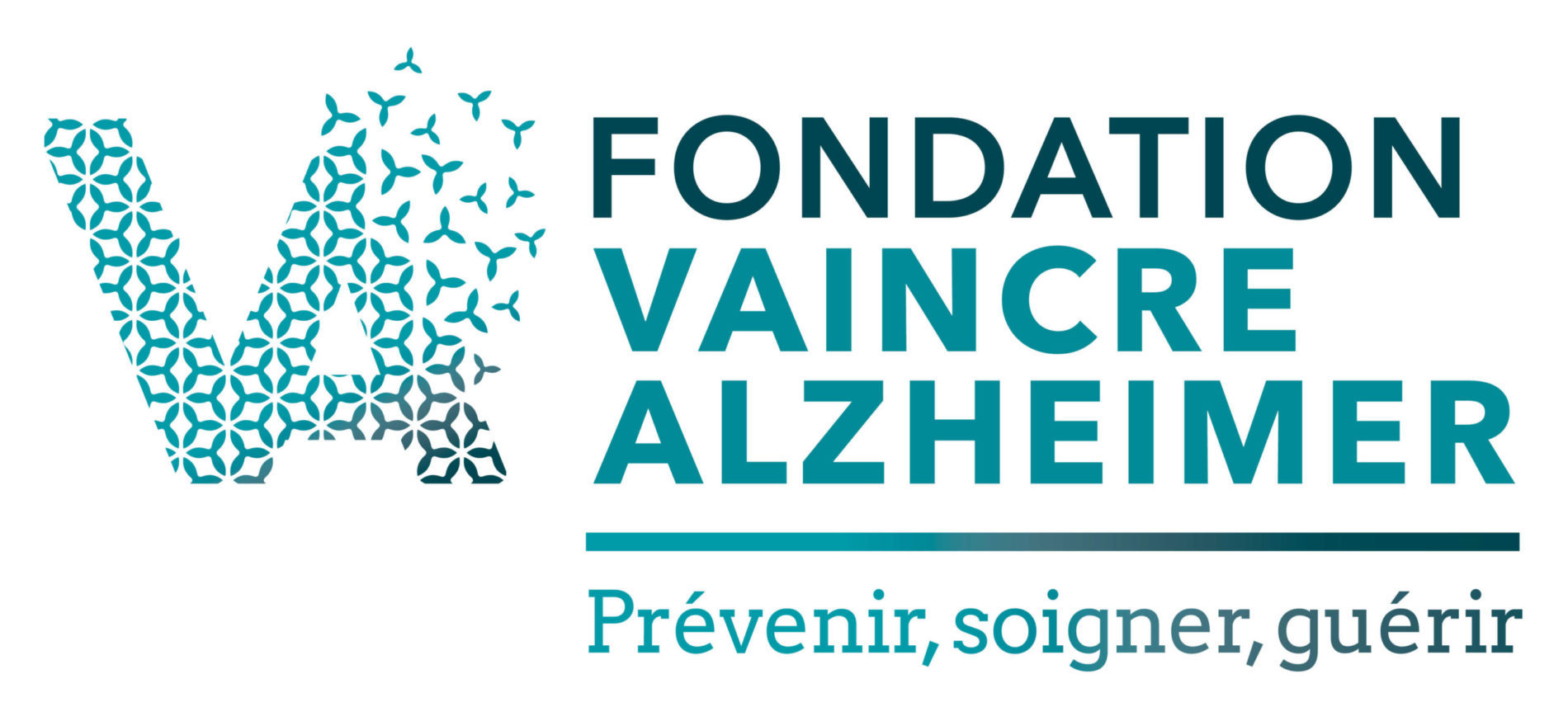PROJECTS SUPPORTED FOR 2017
You can read the descriptions and results of each research project on Alzheimer’s disease funded by Fondation Vaincre Alzheimer.
Prof. Edith Heard
CNRS, Institut Curie, Paris
Epigenetic dysregulations of gene dosage in the ageing brain, involvement in AD
PROJECT SUMMARY
During ageing, chromatin undergoes a progressive epigenetic drift and a global loss of transcriptional silencing. Epigenetic erosion or dysregulation might lead to aberrant expression patterns (e.g. APP overexpression) during ageing, and more generally to the onset of AD. We propose to explore epigenetic mechanisms underlying changes in gene dosage during the process of brain ageing that could be implicated in AD, using recent and innovative approaches. The study will assess changes in chromatin accessibility and gene expression during ageing (in mouse), and linked to AD (human post-mortem AD samples). Mechanisms will be investigated in vitro with CRISPR Cas9-derived KO on potential targets.
RELEVANCE OF PROPOSED RESEARCH TO ALZHEIMER’S DISEASE
Epigenetic mechanisms are suspected to be implicated in AD, but very little is known so far, as it is a recent field with technical challenges. During ageing (the predominant risk in AD), epigenetic mechanisms can become globally dysregulated. This may lead to aberrant expression of dosage sensitive genes such as APP, and to sporadic AD onset. Based on the long standing expertise of the Heard lab in epigenetics, we will address the question of epigenetic changes affecting the ageing brain and their implications in AD. The modulation of the relevant epigenetic mechanisms for example in aberrant mono/biallelic expression could also represent a therapeutic perspective.
January 1st, 2018 – December 31th, 2019 (2 years)
100 000 €
Dr. Devrim KILINC
INSERM, Institut Pasteur de Lille
Role of Pyk2/p53 Pathway in Synaptic Failure due to Localized Aβ Treatment
PROJECT SUMMARY
Pyk2 was identified as a genetic risk factor of Alzheimer’s disease (AD); however, its role in synaptic plasticity/failure is not fully understood, delaying the development of potential therapies. Using microfluidic primary neuron culture, live-cell imaging, and classical biochemisty, we aim to dissect the role of Pyk2 and the related p53 signaling pathway in synapse maturation and maintenance, and to determine if and how Pyk2 signaling modulates the effects of Aβ at pre- and/or post-synaptic levels. We also aim to screen a panel of shRNA/inhibitory molecules focused on Pyk2/p53 pathway for protecting synapses from Aβ toxicity using a novel assay system to identify potential drug targets.
RELEVANCE OF PROPOSED RESEARCH TO ALZHEIMER’S DISEASE
This project will determine the roles of Pyk2/p53 signaling in Aβ toxicity in primary neurons, via systematic interrogation of developmental and synapse plasticity-related read-outs at pre- and post-synaptic levels. Deciphering these mechanisms will advance our understanding of AD pathophysiology and help us identify potential therapeutic targets focused on Pyk2 and p53. The proposed project is relevant and timely, considering the emerging roles of the focal adhesion pathway (in which Pyk2 participates) in synaptic plasticity and the emerging, non-apoptotic roles of p53 in the development of the nervous system.
January 1st, 2018 – December 31th, 2019 (2 years)
40 000 €
Dr Pierre Lafaye
CNRS, Institut Pasteur, Paris
Towards amyloid plaques and tangles imaging with nanobodies
PROJECT SUMMARY
In vivo detection of amyloidß (Aß) deposits and tau neurofibrillary tangles is critical for the early diagnosis of Alzheimer’s disease (AD). Detection of these lesions using PET ligands is a burgeoning field of research still hampered by concerns about spatial resolution, sensitivity and specificity. MRI is a seducing alternative to PET imaging and we propose to develop MRI-compliant and nanobody-based imaging probes that target either Aß or tau moieties. This project is based on robust preliminary results on in vivo imaging of plaques and tangles with fluorescent nanobodies. Our aim is now to reach the in vivo MRI step using new nanobody-based contrast agents.
RELEVANCE OF PROPOSED RESEARCH TO ALZHEIMER’S DISEASE
Being able to detect AD brain lesions by MRI remains a challenge as, to date, all developed MRI probes do not spontaneously cross the blood-brain barrier (BBB). We recently showed that camelids single-chain antibodies (VHH region or nanobodies) targeted against Aß or tau can cross the BBB in different AD mouse models, diffuse in vivo in brain parenchyma and accumulate in plaques and tangles. We then demonstrated that these nanobodies can be conjugated to MR contrast agents and we plan to use these conjugates for the in vivo detection of AD brain lesions.
January 1st, 2018 – December 31th, 2019 (2 years)
100 000 €
Dr Isabelle LE BER
INSERM, Institut du Cerveau et de la Moelle, Paris
RNAs as diagnosis tools in FrontoTemporal Lobar Degeneration
PROJECT SUMMARY
FrontoTemporal Lobar Degeneration (FTLD) are degenerative dementias related to Alzheimer’s Disease (AD). The clinical, genetic and pathological heterogeneity of FTLD can lead, at onset, to confuse it with psychiatric disorders or AD. New biomarkers remain to be discovered to improve FTLD diagnosis. Two of the three proteins aggregated in familial and sporadic FTLD are linked to RNA biogenesis (mRNA, microRNA, lncRNA…). We propose to offer to living patients a new and precise way to improve FTLD diagnosis at onset, predict the pathology, follow the disease progression and ultimately to monitor future therapeutic trials, by using a set of carefully selected miRNA as biomarkers.
RELEVANCE OF PROPOSED RESEARCH TO ALZHEIMER’S DISEASE
FTLD is a degenerative dementia related to AD that leads to progressive behavioral deterioration and language disorders as AD. FTLD is not only the most common form of presenile dementia after AD, but also the leading type of early onset dementia. FTLD and AD also overlap at molecular level. Misfolded Tau is aggregated in AD as well as in 30% of FTLD (FTLD-TAU). Otherwise, neuronal TDP43 aggregates are found in 50-60% of remaining FTLDs (FTLD-TDP) as well as in 20-55% of AD. Thus FTLD is considered related to AD and despite new FTLD diagnosis criteria, their sensitivity and specificity are still insufficient, leading to often confuse FTLD with AD at onset.
January 1st, 2018 – December 31th, 2019 (2 years)



